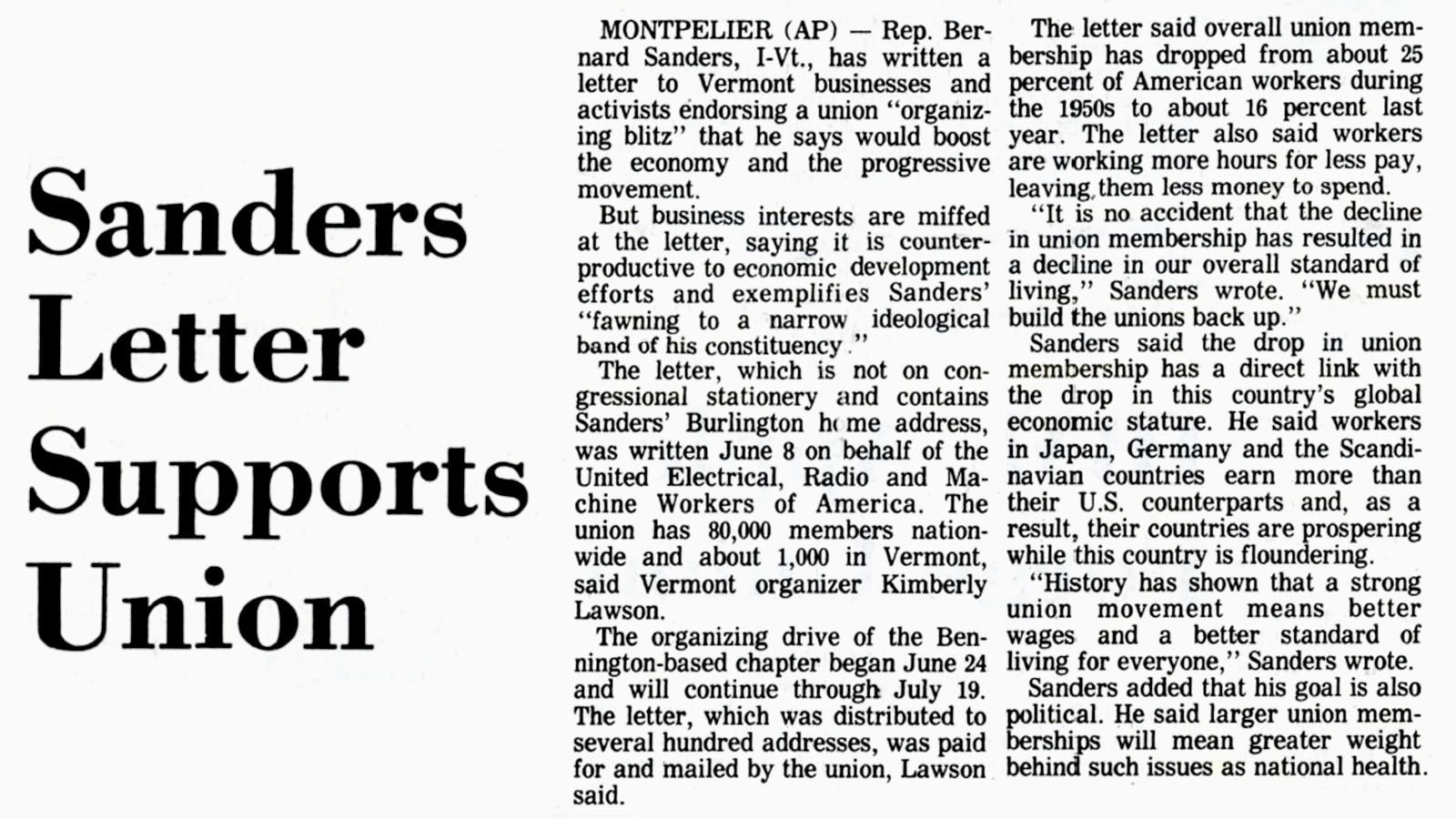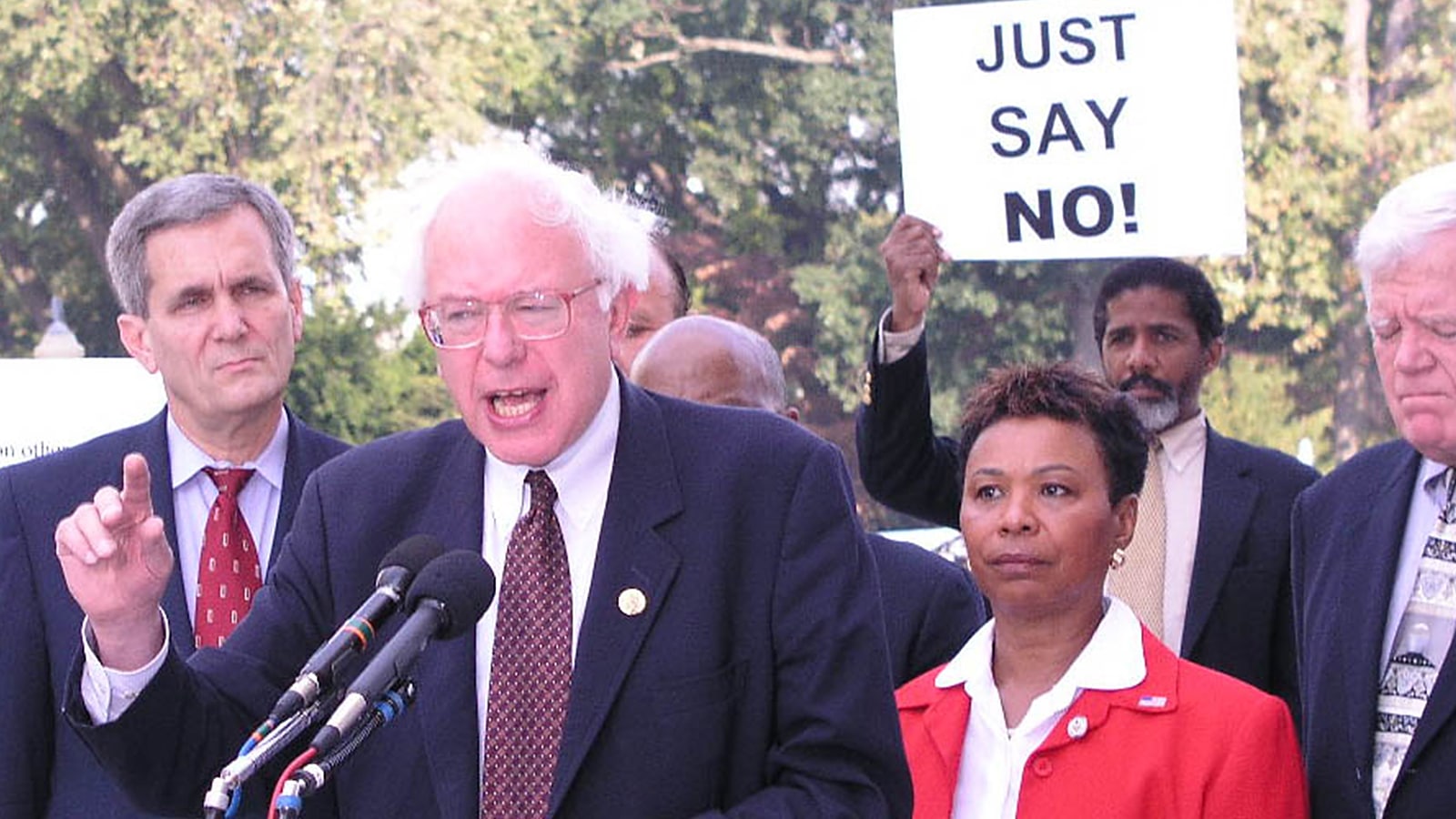In the summer of 1991, Rep. Bernie Sanders, alarmed at the decline in union membership nationwide since the 1950s, sent a letter to Vermont businesses and activists endorsing a union organizing blitz. The blitz, led by the United Electrical, Radio, and Machine Workers of America, sought to reach unorganized workers across plants and factories statewide.
Bernie’s call-to-action letter expressed to citizens the urgency of union organizing to maintain quality of life for all Americans, which proved to be an accurate foreshadowing of the hurdles the nation would face in the decades to come:
“In the mid-1950s this country led the world in wages paid to manufacturing workers. Nearly one out of four workers belonged to a labor union and bargained collectively for wages and benefits. The average family worked 40 hours a week and could afford to buy a home.
What has happened since? Union membership has dropped to 16% of the workforce by 1990 and it is no accident that the decline in union membership has resulted in a decline in our overall standard of living.
In the 1980s, American workers put in more hours for less pay. Instead of 40 hours, the average family worked 84 hours a week. Instead of leading the world in wages paid, the U.S. has slipped behind many countries including Germany, Norway, and the Netherlands. Home ownership has become an unaffordable dream for more and more working families and for the first time in four decades workers face the reality that their children will have a lower standard of living than they have had.
If we are going to reverse this decline in the standard of living, we must build the unions back up. Unions must organize the unorganized to raise the wages and standards in manufacturing plants. History has shown that a strong union movement means better wages and a better standard of living for everyone. Higher union wages means’ nonunion shops must raise their wages in order to attract employees.
Higher wages mean that workers and their families are able to spend more in the stores and shops of their communities. Higher wages and a better standard of living means that workers can afford to buy their own homes and send their children to college. Everybody prospers by a strong and large union movement.
I believe that by building a strong union movement we can also build a progressive work force that will join the fight for such reforms as National Health Care, sound economic policies, a cleaner environment and a radical change in our national priorities.”[1]
 Back to Timeline
Back to Timeline


